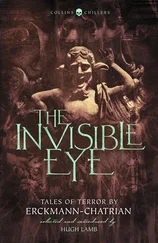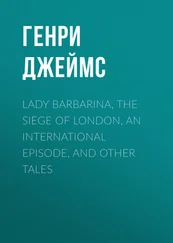VI
Perfect as the moon was Gemulah; her eyes were sparks of light; her face was like the morning star; her voice was sweet as the shades of evening. When she lifted up her voice in song, it was as if all the gates of melody were opened. She knew, besides, how to bake kavanim and how to roast meat on hot coals. Though Gemulah was only twelve years old when Gamzu first chanced upon her home, her wisdom shone out like that of a mature woman, for her father had passed on to her the secret knowledge laid up by his ancestors. She was his only child, his wife having died in giving birth to her. He had taken no other wife, and since he could not bear to think of so much wisdom perishing, he had handed on what he knew to his daughter.
Gamzu spent about a year in her father’s house, until his strength began to return to him. Then he went his way and traveled to Vienna to have his eye treated. He spent a year in Vienna and left with one eye only. All the time he was in the hospital he consoled himself with the thought that his sight would return and he would then go back to Gemulah. When he left the hospital he had no funds for travel; all his resources had been eaten up in doctors’ fees. Akiva Amrami met him and said, “Obadiah and Obadiowitz are seeking a man like you, who would be willing to travel on their behalf to distant countries and bring back rare books.” He went to see Obadiah and Obadiowitz; they marked out all the places he was to go to, paid his traveling expenses, and authorized him to spend on their account as much as he needed. God prospered his way and Gamzu gave satisfaction to his employers. He was able to save some of his earnings, and so he set out for the land where Gemulah lived.
In the meantime something had happened in Gemulah’s country, the like of which hardly occurred once in a jubilee cycle. A holy man, a Hakham of Jerusalem, had appeared there and stayed for six months. Six more months had already gone by since his departure, yet his name was still on everybody’s lips. Those who had been sick spoke of how Hakham Gideon had relieved their suffering. Others told of how Hakham Gideon had taught them ways to ease the burdens of life. He had also shown how all kinds of illnesses might be avoided, even without incantations, even in the case of infants who normally die of the evil eye. He had taken no fees from them, and if they had given him a present he had made them a gift in return. Gamzu was of the opinion that this Hakham Gideon was no Jerusalem Hakham , but a European man of learning, an ethnologist or something of the kind. He saw as evidence of this the fact that Gideon had recorded in his notebook all the songs he had heard from Gemulah and even her conversations with her father in the language they had devised for themselves.
So Gamzu returned to Gemulah’s home, and when Gemulah saw him, she rejoiced as a bride over her bridegroom. She roasted a kid for him and baked kavanim and sang for him all the songs that Hakham Gideon had liked. Nor did she concern herself with the affairs of Gadi Ben Ge’im, her neighbor, who insisted that Gemulah had been betrothed to him since the time when they were nursed together at his mother’s breast; for Gemulah’s mother having died in giving birth to her, the mother of Gadi had reared her as a daughter.
At this time evil fell upon Gevariah, Gemulah’s father. He had gone up to the mountaintop to learn from the eagles how they renew their youth. There an eagle had attacked him, not heeding the fact that Gevariah came in peace, without any weapon, not even a stick. Gevariah fought back, and had he not managed to beat off the eagle, he would have been mauled beneath its talons and torn to pieces and devoured. Even so, the eagle injured his left arm, lacerating the flesh. Gevariah neglected the wound until he took sick and died.
Before his death, he appointed a night of dancing, for his own and Gemulah’s sake, for such was the custom in their country. Seven nights before a betrothal they appoint a night of dances, and it is usual on such occasions for the young men to come, and each snatches a wife for himself from among the girl dancers. Gamzu was aware that Gadi Ben Ge’im intended to snatch Gemulah, but he anticipated him and won her and made her his bride.
For seven days and seven nights they held the wedding feast. Gevariah lay upon his mat and conducted the dances with his uninjured hand. Seven different dances he conducted each night, and eight kinds of dances each day, that Gemulah might give birth to a son who would be circumcised on the eighth day. With the end of the seven days of feasting, Gevariah’s life ended, too.
Gemulah mourned her father for seven days and nights, with songs of lamentation every day and night. At the end of her first week of mourning she made a great memorial, with songs and dances full of dread and wonder. After thirty days had passed, Gamzu began to speak to her of the journey they must take. Gemulah heard him out, but could not grasp what this meant for her. When she understood she protested strongly. Little by little she was persuaded, until she consented to leave, but she put off making the journey from week to week and from month to month. All this time the moon did not affect her; it seemed that because of her grief at her father’s death the moon had no power over her. She was also protected by the charms, though there was no change in her condition, and she was like an unripe fig that is still closed up, on the tree, her sweetness all stored within. At the end of the year of mourning, she said of her own accord that she was ready for the journey. Gamzu hired two camels, and they rode until they came to the edge of the desert, where the caravans go out. They joined a caravan, journeying for forty days until they came to a settled region. Gamzu bought shoes for her feet and dresses for her to wear and a kerchief for her head, and they rode on until they reached a port. There he hired a ship, and they sailed to the Land of Israel. And because they were traveling to the Land of Israel, God preserved them from all evil. But it was not so in the Land itself. As Rabbi Alshikh wrote, concerning the dispute in the Talmud as to whether a man is judged every day or on Rosh Hashanah only: the latter applies outside the Land, but in the Land of Israel one is judged daily; each single day the Holy One sits in judgment upon His people. The beginning of the judgment was that Gemulah no longer sang her sweet songs. Later, all speech was withheld from her. Next, she was possessed by melancholy. Lastly, she fell seriously ill. With her sickness she began to torment Gamzu. His plight grew worse from day to day.
As Gamzu was relating this, I heard a sound like the opening of a window. At the same moment I could hear spoken words. I was not afraid, but I was certainly astonished, since besides myself and Gamzu there was no one in the house, and neither he nor I had opened a window. I began to recollect the dream I had had on the previous night, the train I saw and the window that opened. And again I was amazed at the power of dreams, which come back to us when we are awake as if they were real happenings. Once more I heard the same sound. I listened attentively and thought, Ginat must have come home and opened a window. But how could one explain the sound of spoken words? Gamzu saw I was distracted, and said, “You are tired. Do you want to sleep?”
“No, I am not tired, and I don’t want to sleep.”
“Are you troubled about something?”
“I can hear footsteps.”
“If I can trust my own ears,” said Gamzu, “there has not been a sound or even an echo of one.”
“If that is so, I must be mistaken. Let us go back to what we were talking about.”
Gamzu began to speak again about his experiences with Gemulah in Jerusalem. Many a time her life had hung by a thread, and had not the Holy One helped him, he would not have been able to endure his distress for a single day. But God’s mercies are great. He sends a man afflictions, but He also gives him the strength to withstand them.
Читать дальше












